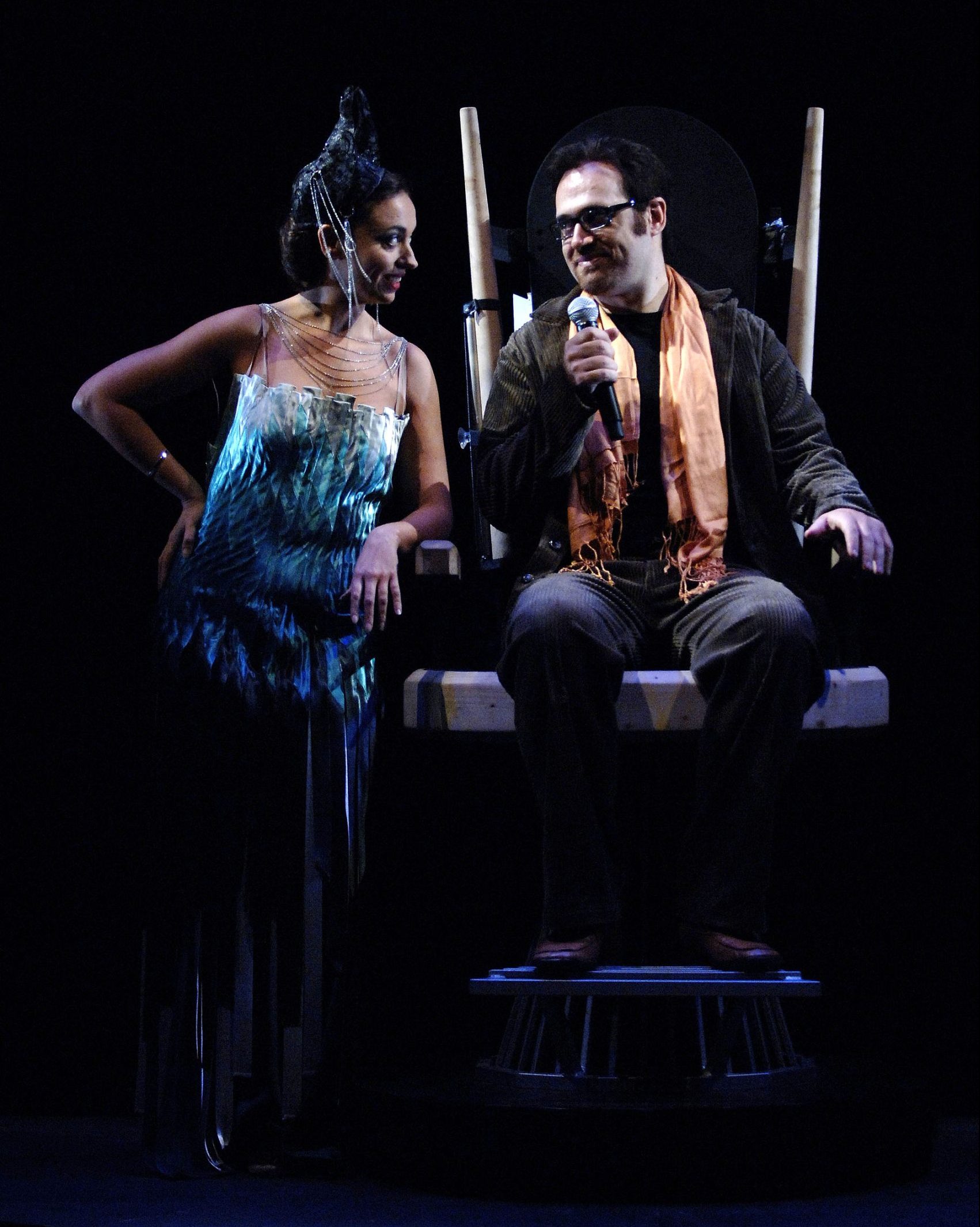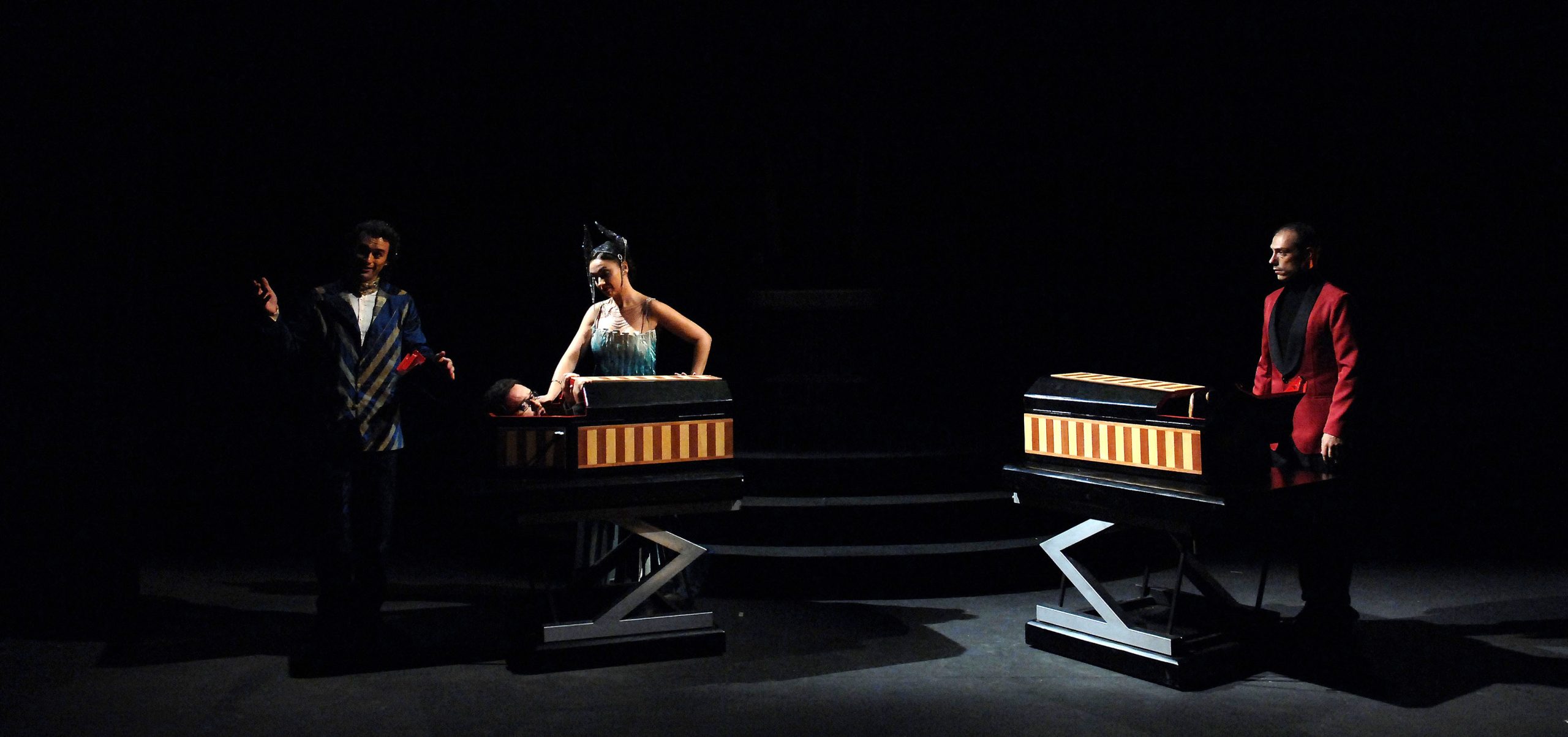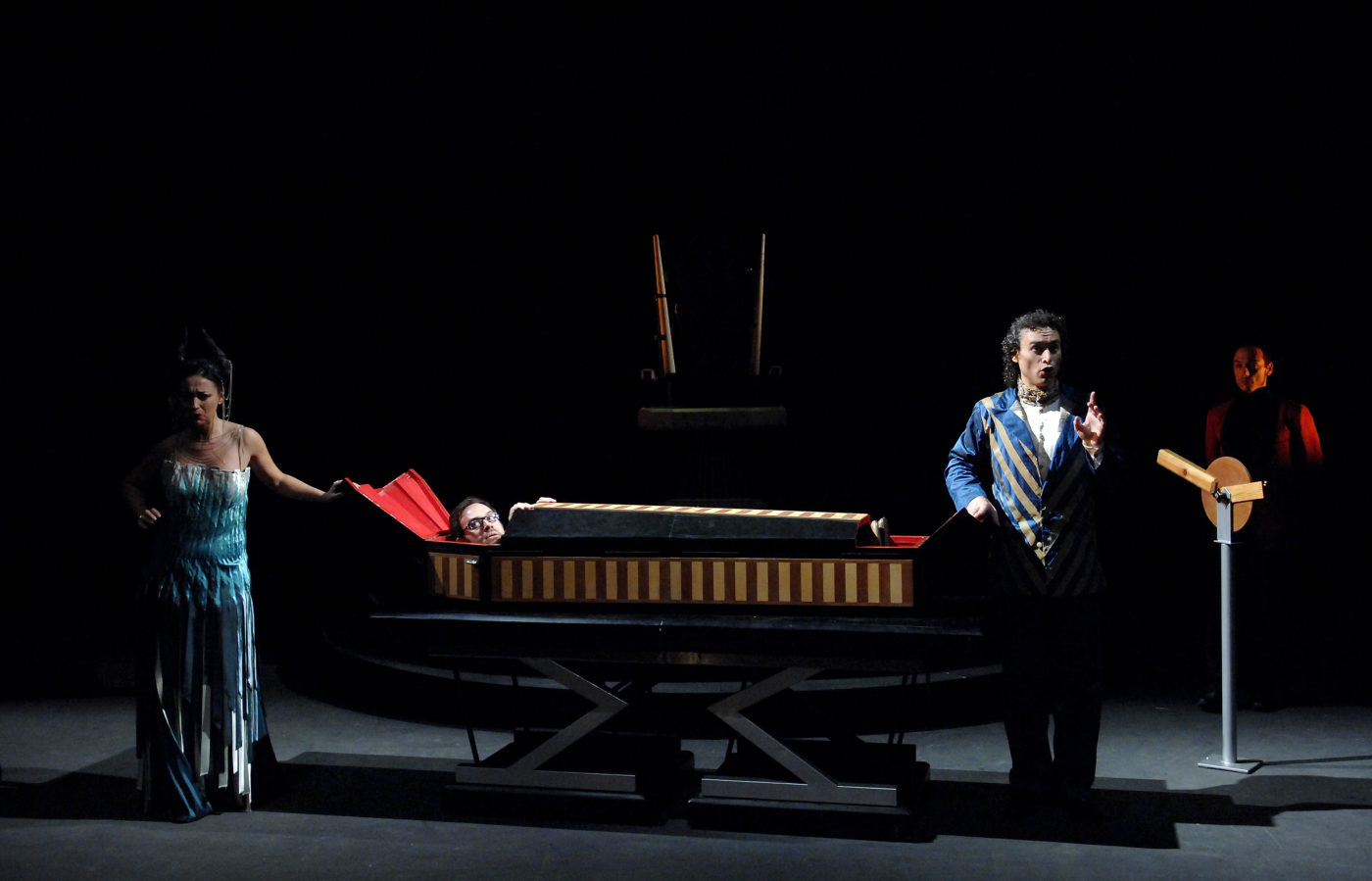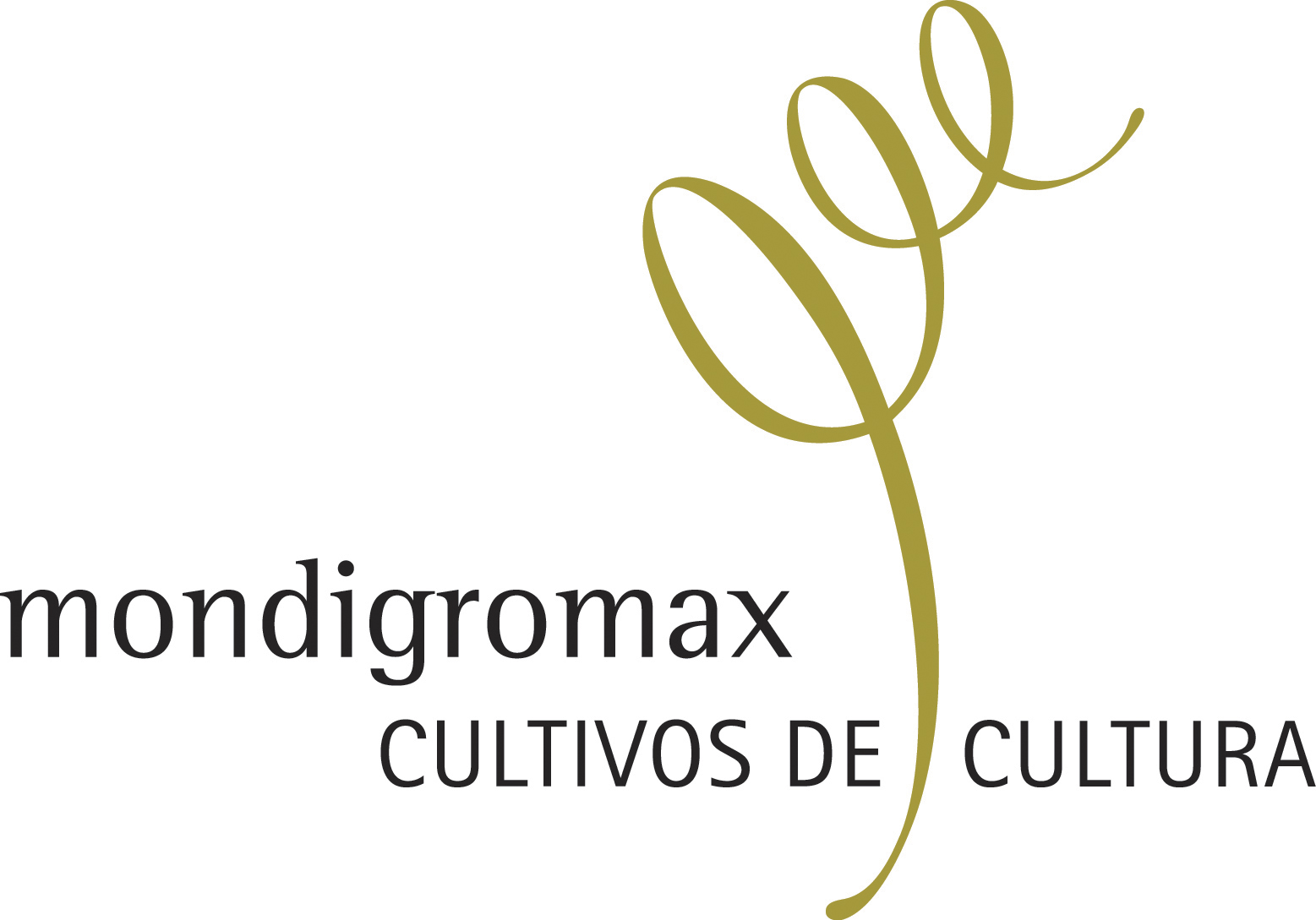Editorial Mondigromax
Saló d’Anubis
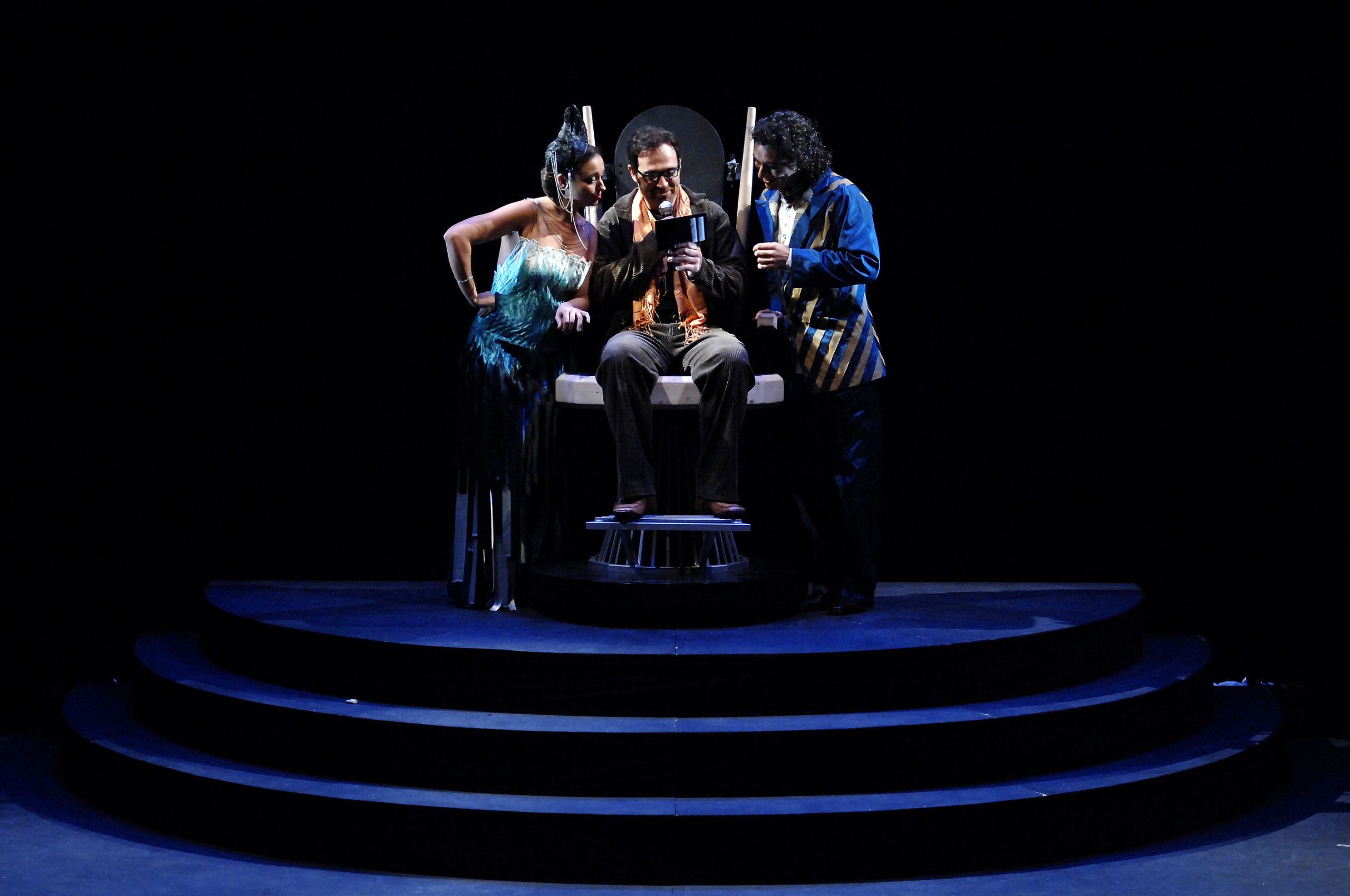
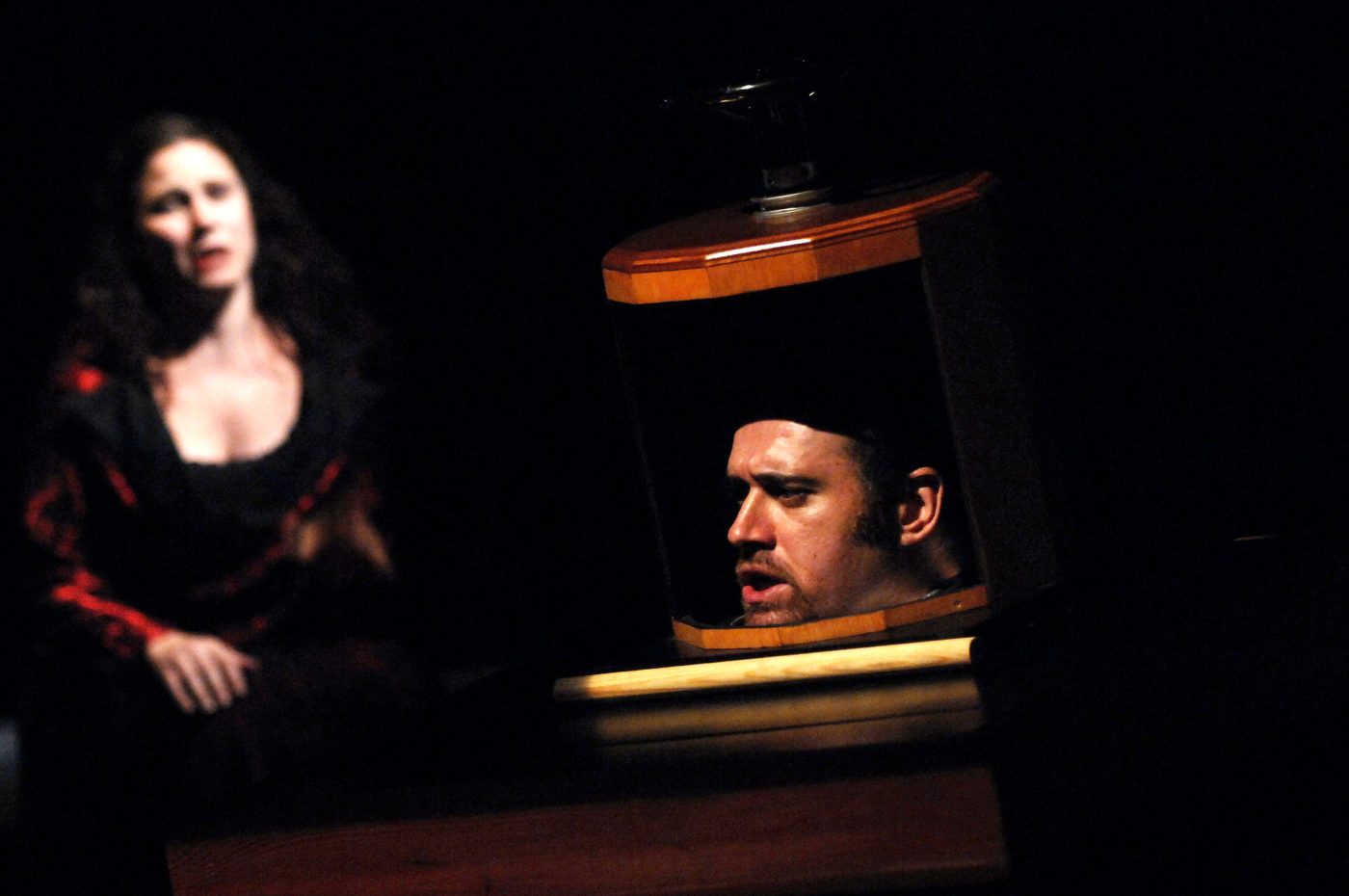
Saló d’Anubis
Joan Albert Amargós

Saló d’Anubis o l’Acadèmia de Lilí & Danté
Opera for 4 voices and a chamber orchestra of five instruments
Genre crossover: Magic, Cabaret and Puppets shake hands with Opera
Composition: Joan Albert Amargós
Idea & Libretto: Toni Rumbau
Year of composition: 2007
Duration:
Language: Catalan
Commission: Festival Òpera de Butxaca and Nova Creació, FOBNC Barcelona
World premiere: October 2, 2007, Winterthur Theatre, Germany Catalan Culture Guest of Honor at Frankfurt Book Fair 2007
Saló d’Anubis o l’Acadèmia de Lilí & Danté is an opera with two sides under the appearance of a Cabaret and magic Show. Has the aim of intertwining Music with other genres: Puppets, Shadow Theater and Magic. This crossover of languages help expand the frontiers of operatic genre, interdisciplinary in nature. As in Eurídice y los títeres de Caronte (2001), by the same autor, death is the main theme in this Cabaret led by the egyptian Gods Thoth and Anubis. Subtly brings the main protagonist and the opera theatre goers face to face with Death.
Synopsis
Lilí and Danté, the Hosts of the Cabaret, have the task of announcing to the Guest (Convidat) that he is dead, and of accompanying him afterwards on a journey of metamorphosis towards the acceptation of himself as deceased. These masters of ceremony are two double characters: on one hand they are Magicians, Hosts of a Cabaret made up of magic spots; on the other, they are archetypical figures defined by the masks of Anubis and Thoth. The fourth character is Rosa, the wife and companion of the Guest (the Convidat- the living-deceased), who emerges directly from the dramatic context of the work. Rosa is the living person who suffers the loss of a loved one: at his side her life will also go through a radical transformation.
Enqueries about Saló d’Anubis score, contact Editorial Mondigromax.
Saló d’Anubis o l’Acadèmia de Lilí & Danté
October 24, 25, 26, 27 and 28, 2007
Sala Petita, Teatre Nacional de Catalunya, Barcelona
October 18, 2007
Kleines Haus, Staatstheater Darmstadt, Germany
In the frame Catalan Culture Guest of Honor at Frankfurt Book Fair 2007
Creatives & Cast
Music and Musical Direction: Joan Albert Amargós
Libretto: Toni Rumbau
Stage director: Luca Valentino
Scenography: José Menchero
Scenography Construction: José Menchero & Ramon Beneito
Costumes: Raquel Bonilllo
Catalan Cast
Lilí: Mónica Luezas / María Hinojosa (Soprano) Danté: Marc Canturri (Baritone) Guest: Toni Comas (Tenor) Rosa: Claudia Schneider / Marta Valero (Mezzosoprano)
Spanish Cast
Lilí: Maria Hinojosa (Soprano) Danté: Toni Marsol (Baritone) Guest: Miquel Cobos (Tenor) Rosa: Anna Tobella (Mezzo)
Puppet Voice: Toni Rumbau
Barcelona 216 (Instrumental Ensemble Barcelona 216):
Piano: Daniel Espasa / Xavier Barbeta Clarinet: Xavier Castillo Double Bass: Luís Miguel Cojal Violin: Carlota Amargós / José Oriol Alguero Trumpet: Raul Garrido Ciscar (Touring) Trumpet at the TNC: Francisco Rodríguez
Assistance on Magic: Mag Lari
Lighting: Quico Gutiérrez
Lighting technician: Silvia Kuchinow
Stagehand: Ramon Beneito
Movement: Susana Rodríguez
Video: Marta Hincapié
Video assembly: Anastasi Rinos
Characterisation: Toni Santos
Makeup, Hairdressing, Wardrobe: Esther Sánchez
Stage manager: Germano Bozzelli
Catalan version: Toni Rumbau, J.A. Amargós & Marc Rosich
Director assistant: Glòria Balañá
First assistant: Pau Gómez Vilar
Second assistant: Susana Rodriguez
Production assistant and rehearsal photograph: Jorge Raedó
Graphic Design: Mariano Rolando
Translation into English: Rebecca Simpson
Translation into German: Karin Dietrich and Alfonso Romero
Cover Photography: David Ruano / TNC
Libretto printing: Argra
Executive producer: Lola Davó – Bitó Productions
Coproduction FOBNC, La Fanfarra and Bitó Productions
With the support of Generalitat of Catalonia
Collaborating organisations: TNC, Institut Ramon Llull, Temporada Alta, Fundació Bogliasco
Press quotes
Amargós/Rumbau (tandem which worked so well in Eurídice y los títeres de Caronte) demonstrates the iron health of a genre that is renewed thanks to the weight of tradition. Where there is good writing for lyric voices, minimally traceable melody and an interesting libretto as well as a sense of rhythm and spectacle, opera will remain alive and well. This is Saló d’Anubis, a chamber piece for four voices: soprano, mezzo-soprano, tenor and baritone and accompanied by violin, cello, clarinet, horn and piano. Joan Albert Amargós has created a score that is listened to with interest and that does not spare features of a refined and characteristic sense of humor with a well-resolved understanding between innovation and tradition. October 25, 2007. Jaume Radigales, Opera Diary
:::
Seeing Amargós conducting in front of the instrumental group BCN 216 is quite a spectacle. His music, brilliant, of irresistible rhythmic vitality and not a few lyrical flights, captures the listener. He does it with healthy eclecticism in a score of jazz accents. With the evident imprint of Bernstein and Piazzolla. He has a lot of skill and talent Amargós. Barcelona 216’s performance, especially pianist Daniel Espasa, is spectacular. November 2, 2007. Javier Pérez Senz, El País
